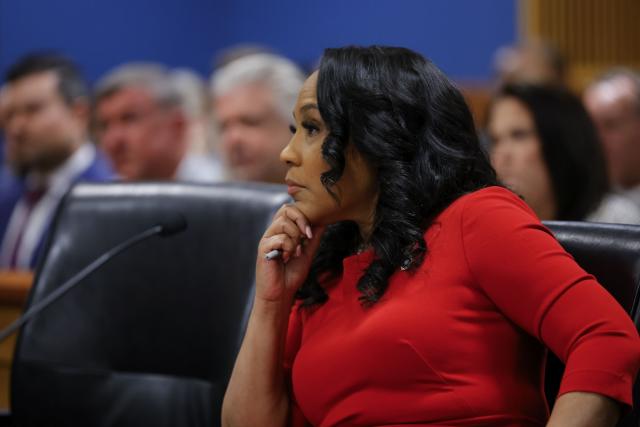Obama-appointed Supreme Court justice loses consensus builder status as court changes, moves right
Despite acquiring a reputation as something of a consensus-builder over the course of her career in the law, Supreme Court Justice Elena Kagan is increasingly emerging as a jurist frustrated by the rightward shift of the court and one who is publicly lamenting the processes that led to recent decisions that did not go her way, as a recent profile in Politico explains.
Kagan's change in tone has been particularly apparent in the wake of the high court's summer ruling in Dobbs v. Jackson Women's Health Organization, in which the longstanding abortion precedent of Roe v. Wade was overturned.
Kagan sounds alarm
A common thread for decades in Supreme Court lore has been tales of unlikely friendships between justices who share little in the way of ideological disposition.
Famous among these stories was the warm personal bond linking late Justices Antonin Scalia and Ruth Bader Ginsburg, who were said to have found common ground over a mutual love of the opera, wine, and travel.
Though these anecdotes have often been used to emphasize that the justices carry with them the ability to put personal philosophies and policy preferences aside for something greater – whether a rewarding relationship or the court's higher mission of interpreting the law in the context of the Constitution, Kagan recently – and seemingly abruptly – questioned their value.
Speaking in Rhode Island last year, Kagan declared, “To be a truly collegial, collaborative court, you have to be talking about more than: 'Do they talk about baseball together? You have to be talking about: 'Can they engage in the real work that they're doing in collegial and collaborative ways? … that comes only with serious, sometimes difficult, but persistent effort to engage.”
Soon after, Kagan echoed those sentiments in a speech at the University of Pennsylvania, saying, “I don't see why anybody should care that I can talk to some of my colleagues about baseball, unless that becomes a way for a better, more collaborative relationship about our cases and work” and signaling ongoing trouble in that regard on the current court by adding, “I mean, some years are better than other years. Time will tell whether this is a court that can get back...to finding common ground.”
Consensus-building past
As Politico notes, for decades, Kagan had been regarded by colleagues in the law as someone skilled in the art of unifying those with divergent viewpoints, having succeeded in remedying a host of deep divisions at Harvard Law School when she served as dean of the renowned institution.
The outlet added that Kagan's reputed talents in this regard played a substantial role in her eventual selection by then-President Barack Obama for the high court vacancy created by the retirement of Justice John Paul Stevens.
“It was significant. It mattered. Her work at Harvard had many good people speaking on her behalf,” an insider noted. “She's very good at bringing disparate voices together.”
That approach, according to Politico, continued once she ascended to the high court, with Kagan embarking on hunting expeditions with Alito and attending a legal conference in Iceland alongside Donald Trump-appointed Justice Neil Gorsuch last year.
Dobbs-inspired shift
The collegial path pursued by Kagan for so long appeared to take a dramatic turn, however, in the aftermath of the Dobbs ruling, when the liberal justice began to publicly suggest that the decision had the potential to upend the court's legitimacy, thereby putting democracy itself at risk.
“If, over time, the court loses all connection with the public and with public sentiment, that's a dangerous thing for a democracy,” Kagan said soon after the opinion was issued. “Over the long haul...the court either earns its legitimacy, its confidence or it loses its legitimacy and its confidence. There's nothing I can do to, kind of, decree public confidence in the court from a stage like this one.”
Without specifying any decisions by name, Kagan asserted that certain recent outcomes at the court were the result of a desire on the part of some of her colleagues to reach a policy outcome, rather than of the legal reasoning presented in the formal majority opinions.
“You can't be a textualist on Monday and on Tuesday say, that produces a set of results that I don't like and do something else entirely,” Kagan quipped, in a clear jab at the conservative wing of the court.
Notably, Kagan's hunting buddy, Alito, parted with convention upon hearing of his colleague's remarks, telling the Wall Street Journal, as Politico noted, “It goes without saying that everyone is free to express disagreement with our decisions and criticize our reasoning as they see fit. But saying or implying that the court is becoming an illegitimate institution or questioning our integrity crosses and important line.”
Uncertain future?
Though some of Kagan's associates believe that, despite her unhappiness with the court's direction, she is unlikely to walk away because of it, with others suggesting that she is gradually – albeit grudgingly – accepting that her future entails years of service to an institution that she feels has lost its way.
According to the Washington Examiner, there is a movement afoot on the left to convince Kagan and fellow liberal Justice Sonia Sotomayor to retire so that President Joe Biden can nominate two younger progressives to replace them, and whether either will acquiesce to those wishes and make an earlier-than-expected exit from the court, only time will tell.






